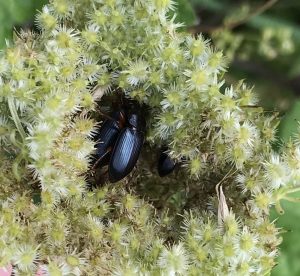
c. Jean Vernon
It’s hard to understand the extent of the climate crisis when we are surrounded by beautiful gardens and immersed in nature. But that’s because many of the changes are subtle or distant or even gradual. But it’s happening on our watch, under our noses and before our eyes.
It’s easy to think that you can’t make much of a difference but you really, really can. Especially if you are custodians of a garden, or a natural space or if you inspire and inform others. If each of us does one small thing to make positive changes the knock on effect for nature will be huge.
Change your perspective
While we might all aspire to a neat and tidy garden, that’s not so good for nature. We need to leave a part of our garden wild and undisturbed for the intricate web of interconnectedness to exist, thrive and grow. This is the basis of a healthy ecosystem.
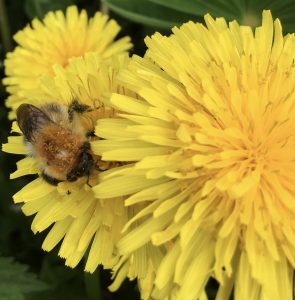
c. Jean Vernon
Take a look at what is germinating in the bare soil right now. Many things that you consider to be weeds are so tough and adaptable that they are the first things to start growing after a tiny glimmer of warmth in late winter. There’s a simple way to totally rid your garden of weeds in literally the blink of an eye. Yes really. You need to look at them in a different way. Weeds are wildflowers. So simply change your perspective. That might sound flippant, it’s not meant to. But it can make a huge difference to how you garden. Of course you don’t want dandelions pushing through the cracks in your patio paving. But those that are out of sight or growing elsewhere are essential nectar bars for our struggling pollinators. Take a look around your garden right now, what is in flower? Probably not that much. In February dandelions represent a truly vital source of pollen and nectar for emerging pollinators like the Queen bumblebees and a few solitary bees starting to nest. Leave them to flower to feed the pollinators and if you really struggle to do that, then leave them for February and if you can for March into April until your garden is full of other flowers to take over. And remember that the seed eating birds, like the finches will eat the dandelion seeds.
Dump the toxins
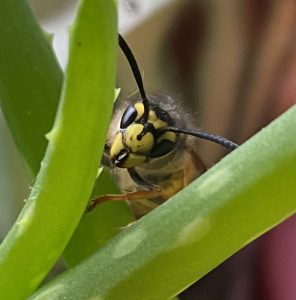
c. Jean Vernon
The most powerful action you can take in your garden is to dump the toxins. That means anything and everything that’s designed to kill, treat and repel garden pests and diseases. The RHS has stopped using the ‘P’ word for pests now reclassifying them as biodiversity. This is a huge step forward. But we need to go further to start to repair some of the damage that has been done to the environment. Our gardens are a great place to start.
See the beauty
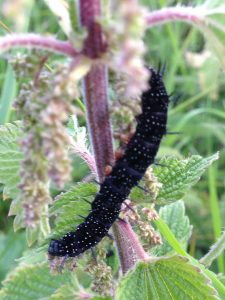
c. Jean Vernon
Everything in nature is interconnected and has a purpose. Without the insects, fungi, microbes and mini-beasts it would cease to function and would die. There is still so much that we don’t know about the importance of every living thing. But what we do know is that the soil and our plants are towards to bottom of the food chain. Some of our plants are food for many garden mini beasts. If we spray and kill everything feeding on our plants we miss the point entirely. The creatures eating your plants are another layer in the entangled web of nature; they are food for something else. They fatten themselves up on plant matter and then either mature into their adult form, often as pollinators or they become a meal for something else. We should not get to pick and choose what lives and dies in our gardens.
Whatever we spray or treat our garden with washes into the soil and can affect soil health or injure the soil micro flora and fauna. Plus if we are spraying herbs or food plants, those toxic dressings could be on our menu too. AND these chemicals may persist in our gardens affecting all insects beneficial or otherwise. In my opinion we don’t need them. We can garden with nature and when we do biodiversity returns and natural soil health improves; a vital keystone of overall garden health.
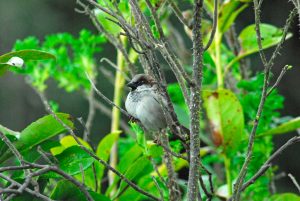
c. Martin Mulchinock
Recent research from the University of Sussex has shown that pesticide use by British Gardeners is playing a significant role in the declining populations of our songbirds. Numbers of house sparrows for example were 25% lower in gardens where glyphosate weedkillers were used.
Remember, the wise words reputedly from Native Americans that said, we do not inherit the earth from our ancestors we borrow it from our children. It’s food for thought as we start a new year in our gardens and greenhouses.


